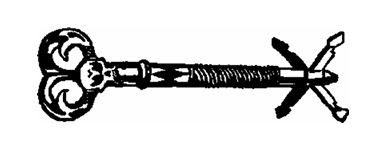I need to write, but I don't know that I want to or what to write about - too many thoughts and ideas buzzing around in my head. Not nearly enough of them game-related.
Frankly, the news keeps me anxious and depressed, but my typical response (retail therapy, my daughter calls it) brings guilt as I think I should be spending on more useful things.
Like ammunition.
Or food, booze, medical supplies, and books.
Just not RPG-specific books (despite there being many awesome kickstarters out there, right now).
RPG-adjacent books, though, I might can justify.
But what to buy?
The Hesperian Health Guides are a solid start - not that I don't trust where the American health systems are headed, but I don't trust where systems as a whole are headed. For me, at least, the popular Foxfire series of books are not the answer, as the varied contents of each book are too much a chore for me to read through.
Dave Canterbury's Bushcraft books are neat and useful and well-illustrated, but I already own them.
From experience, the books from Paladin Press are always ... interesting. I remember ogling the titles in the back of Soldier of Fortune magazine when I was a kid.
Then again, whatever Field Manuals and Training Manuals I don't own from a few terms spent in the military might be a useful pick-up. Often dry reading, though.
All in all, I am trying to get past a writing block, and this post hopefully does it.
Thanks for reading.
-----
Since you read through all that, here is my Joesky tax. A d30 table of books for a kinda-modern game, be it The Morrow Project, Twilight 2000, Aftermath, The Walking Dead, maybe Car Wars, or something else along those lines. The books are heavily US-centric, though, so there is that.
These books might be found in an old ammo can sealed in individual gallon ziploc bags; a footlocker under old uniforms and other military memorabilia; a bookshelf; the door, central console, or glove box of an abandoned vehicle; someone's backpack; or all of them together in PDF format on a thumb drive or external hard drive.
Regardless, none of these are useful unless the reader can actually read English. Each book may provide a skill bonus of some sort - I won't be suggesting any particular ones.
- FM 7-8 Infantry Rifle Platoon and Squad - 100-mile-an-hour tape reinforces the spine, and a bookmark made of several pieces of 5-50 paracord attached to a grenade pin show this to be well-used book. The name LT Smith is written in black sharpie, above several coffee rings that stain the cover.
- FM 21-150 Combatives - hand-to-hand combat, the US Army way! Remember, folks, the person that wins a melee is the first person to have a friend show up with a gun!
- FM 21-76 Survival - a thick catch-all manual for pilots and others that may spend a long time far from friendly lines. This copy shows wear and tear, and uses a variety of pine needles and leaves as bookmarks.
- Where There is No Doctor - this book might be in any number of languages, but the illustrations ensure at least a small bonus; in fact, it might actually be any of the Hesperian Health Guides, depending on GM whim.
- Boy Scout Manual (1982 edition) - this dog-eared book has the name BEN JAMMIN stenciled on the inside cover. The year of printing dictates the skills covered in the book.
- The Human Powered Home - several illustrated suggestions for enhancing your homelife without electricity. Bicycles and treadles feature in many of the ideas.
- Ragnar's Ten Best Traps - more than ten, actually, for fish, fowl, game animals, and people.
- Bushcraft 101 - if you are lucky, you might instead find the Bushcraft Boxed Set, likely without the box, instead.
- The Lost Art of Reading Nature's Signs - a useful book for those forced into the outdoors, rather than having grown up in them.
- Pocket Naturalist Guides - One (or more) pocket-sized illustrated foldables covering a range of information, from foraging to knot-tying to the birds of Northeast America, so they may not always prove useful.
- Encyclopedia of Herbal Medicine: The Definitive Home Reference Guide to 550 Key Herbs with all their Uses as Remedies for Common Ailments by Andrew Chevallier - this thick book is full of pictures and tips
- FM 23-10 Sniper Training - it's not just how to shoot at a distance, but also infiltration and exfiltration and camouflage.
- Storey's Basic Country Skills - from the label on the side and library card on the back cover, it is apparent this tome is well overdue from the North Shelby Library, located in Birmingham, Alabama.
- The Anarchist's Cookbook - the first edition is from 1971 and is full of information that most folks probably should not really need to know. Fun conspiracy - the explosives formulas in it are deliberately wrong and designed to blow up the would-be anarchist! I lack the background (and desire) to test this conspiracy.
- The Joy of Home Distilling - a useful picture-filled guide to distilling spirits, either for drinking or fuel.
- English-to-LANGUAGE, LANGUAGE-to-English Phrasebook - Polish is the linked example, but depending on the game's setting, most anything is possible.
- AAA Road Atlas - while small roads and even road names may change, the major roads don't, and regardless of the age of the AAA road atlas, it can get you where you want to be, as long as you don't need to be there.
- Foldable state maps - these may lack the grid squares of military maps, making calling for fire (and ordering pizza from drivers with a GPS) difficult, but these laminated maps make navigation all the easier.
- FM 4-25.11 First Aid - despite the bloodstains, slight water damage, and tears, this book is complete and hella useful to those trying to save a life.
- Propaganda by Edward Bernays - this thin paperback is notable for its marginalia relating to specific historical figures making use of different aspects of the book. Studying this might enhance one's persuasion skills.
- Carpentry for Dummies - this well-worn book always produces a bit of sawdust when shaken, and its spine is broken from being pressed flat numerous times. Illustrated and presumes access to tools that might not be available.
- The Art of War by Sun Tzu - just a translation of the basic book; The Art of War with Commentaries by Sun Tzu - this English translation also includes commentaries from the ages, making it a more interesting read than the basic translation. Folded pages from a legal pad stuffed in throughout the book add the last owner's insights to the commentaries.
- TM 31-210 Improvised Munitions - this yellowing copy is older than you are and may have been used in Viet Nam.
- Mask of Command and Face of Battle by John Keegan - this pair of books addresses both sides of battle, and would-be combat leaders can benefit from reading them. Weapons change, but the people fighting don't.
- Meditations by Marcus Aurelius - a textbook on Stoicism. Studying and adopting this mindset may reduce stress and make it easier to survive torture or other stamina-checking extremes. This particular copy is a well-read paperback with "key" lines underlined.
- Cheap Shots, Ambushes, and Other Lessons by Marc MacYoung - reading this and putting it into practice makes life just a bit more survivable in urban environments.
- FM 5-31 Boobytraps - when you need to protect somewhere or something, but lack the personnel for complete coverage.
- The Trapper's Bible: Traps, Snares, and Pathguards - a useful mix of traps for game, fur, and people. For protection only, naturally.
- Preserving Food without Freezing or Canning - without food, people die. This book shows a variety of ways to preserve food for the winter months. It smells faintly of salt.
- Peterson Field Guide to Medicinal Plants:Eastern and Central North America, first edition - there are more recent editions of this book, and many more Field Guides, but this is one of few that might be useful in a game.
There are a wealth of other books and topics that can fit, but I think most of these would be easily gameable, especially in rulesets with skill systems.
-----
Note that owning/researching some of these titles might put you on a list - but I am right there with you. Also, I presume most established militaries have their own versions of the FMs listed, so replace as needed.
If you're into particular timelines for your games, some of the items linked above may not have been printed yet, while others may just be more recent editions. Either way, check edition and print date if you are into that level of authenticity.
Speaking of food for thought, I found this foraging website aimed at those foraging in the UK. Kinda neat.











